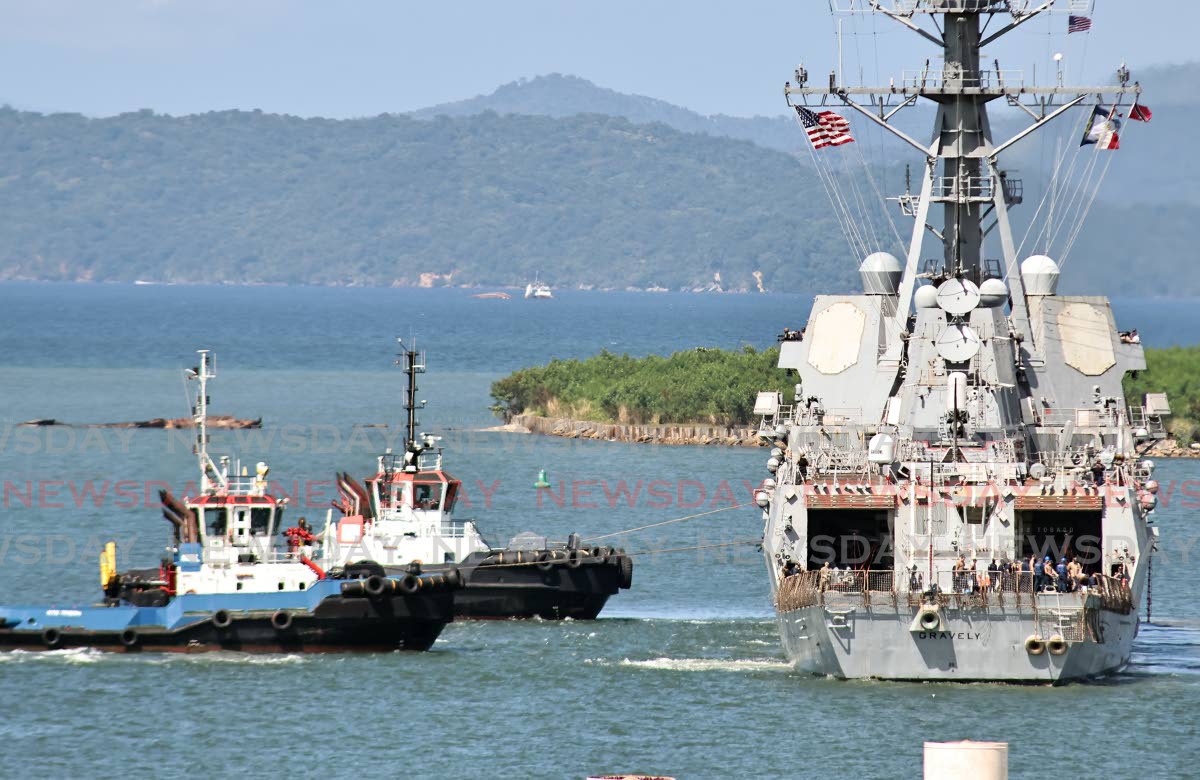The recent visit of the USS Gravely, an American warship destroyer, to the Port of Spain has sparked significant controversy and heightened tensions between Trinidad and Tobago (TT) and Venezuela. The vessel departed on October 30 after a five-day humanitarian and training mission, but its presence has been interpreted by the Venezuelan government as a military provocation, threatening regional peace. This development comes amid Prime Minister Kamla Persad-Bissessar’s aggressive stance against Venezuelan drug cartels, which has drawn criticism from international relations experts and human rights advocates. Dr. Anthony Gonzales, a prominent international relations expert, has openly disagreed with Persad-Bissessar’s support for US military actions that have resulted in the deaths of 61 suspected narco-traffickers. Gonzales emphasized the importance of due process, echoing concerns raised by the United Nations Commissioner for Human Rights, Volker Türk, who condemned the extrajudicial killings. Persad-Bissessar, who returned to power after the UNC-led coalition’s victory in the April 28 general election, has declared a zero-tolerance policy toward drug traffickers, stating, “I have no sympathy for traffickers, the US military should kill them all, violently.” However, Gonzales criticized her contradictory statements, noting her opposition to a Venezuelan invasion while advocating for lethal measures against traffickers. He also questioned the timing of the USS Gravely’s visit, suggesting it could escalate tensions with Venezuela. The Venezuelan National Assembly’s decision to declare Persad-Bissessar persona non grata and suspend energy cooperation with TT has further strained bilateral relations. Historian Dr. Jerome Teelucksingh warned that these developments could have severe economic repercussions for TT, particularly affecting the tourism and energy sectors. While he supports Persad-Bissessar’s efforts to combat drug cartels, Teelucksingh expressed concern about the long-term impact of severed energy agreements, including the loss of the Dragon Gas deal. Both experts agree that TT must navigate this delicate situation carefully to avoid being drawn into a broader conflict.
博客
-
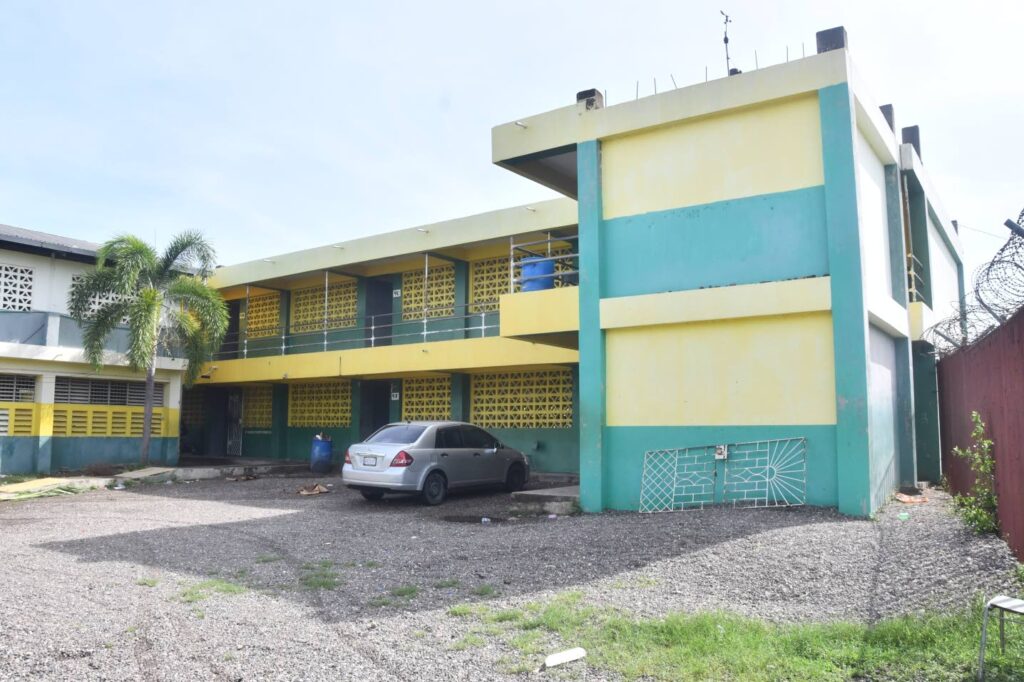
JTA president urges caution in planned reopening of some schools
The aftermath of Hurricane Melissa has left Jamaica grappling with the challenge of reopening schools, sparking a heated debate between the Jamaica Teachers’ Association (JTA) and the Ministry of Education. JTA President Mark Malabver expressed deep concerns over the ministry’s directive for schools in less-affected parishes to resume operations on November 3. Malabver argued that such decisions should be made at the institutional level, involving principals, teachers, and stakeholders, rather than adopting a blanket approach. He emphasized the need to consider the personal circumstances of educators, many of whom have suffered significant losses, including homes and family members, and are struggling with mental health issues.
-
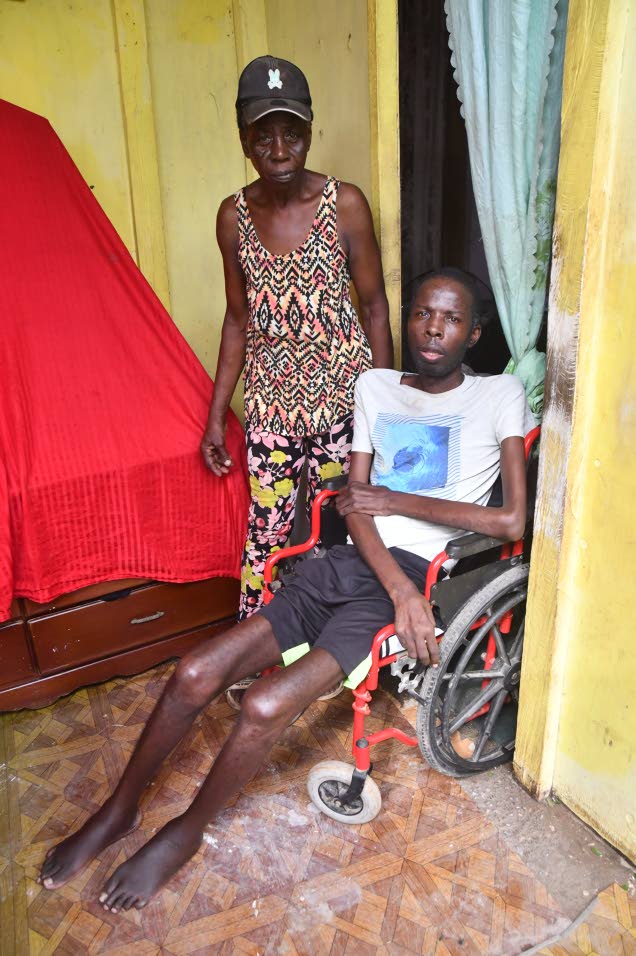
‘You can get back a roof, but not a life
As Hurricane Melissa ravaged Jamaica with winds reaching 185 miles per hour, Vera Brown, a 65-year-old single mother, faced the storm with unwavering determination. Her four adult children, all wheelchair-bound due to an undiagnosed condition, relied on her strength and prayers as the Category 5 hurricane tore through their home in Royal Palm, St Ann. Despite the roof being partially ripped off and the surrounding houses flattened, Brown remained grateful that her family was safe. ‘You can rebuild a roof, but you can’t get back a life,’ she told the Jamaica Observer, emphasizing her priority: her children’s survival. Brown, who suffers from chronic back pain, single-handedly carried her children to safety, a testament to her resilience. Her daughter, Norneth Jarrett, recounted the fear and trauma of the storm, highlighting their vulnerability as a family with physical challenges. The hurricane claimed 19 lives in Jamaica, and the family now appeals for assistance to repair their home and replace lost essentials. Despite their hardships, they remain thankful for their survival, attributing it to divine mercy.
-
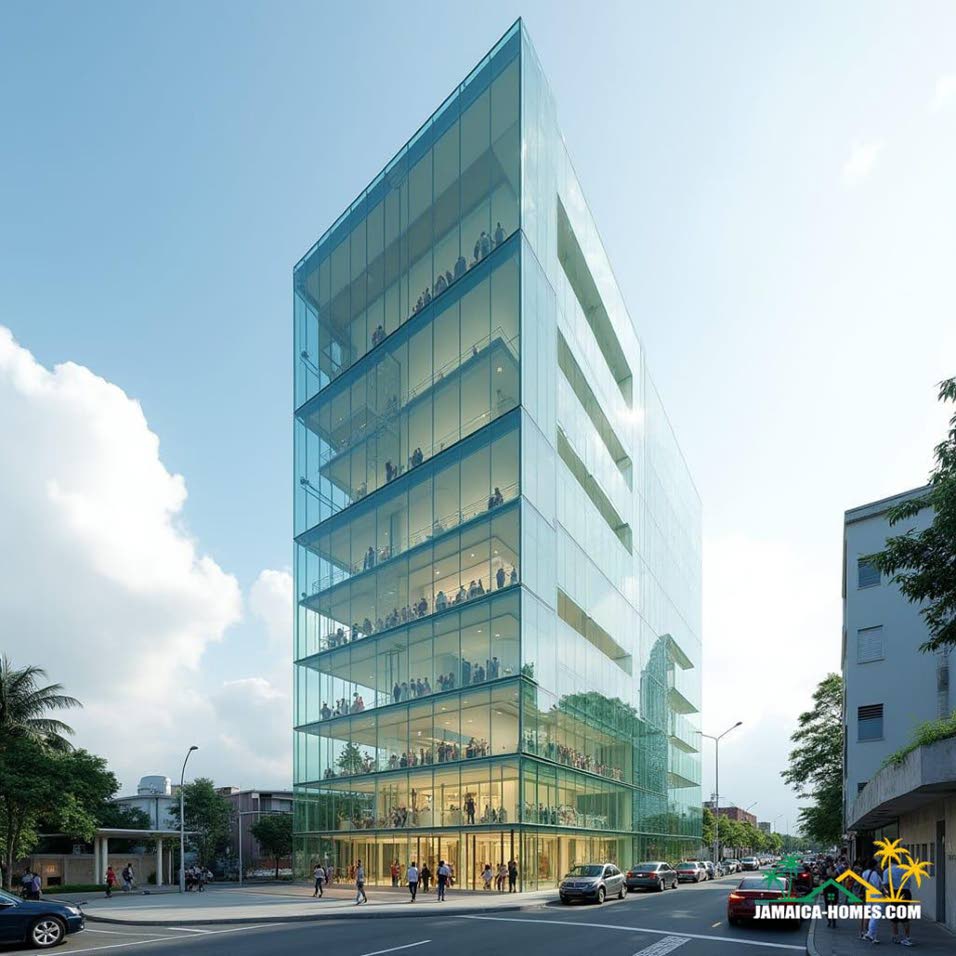
A house that breathes
In Jamaica, architecture transcends mere shelter, embodying a cultural ethos that celebrates community, resilience, and vibrant living. Traditional designs, with their expansive verandas, thick walls, and bold colors, have long reflected the island’s spirit. However, as Jamaica faces modern challenges—scarce land, harsher weather, and technological advancements—the need for a reimagined architectural approach has never been more urgent. This article explores a vision for the future of Jamaican architecture, one that harmonizes tradition with innovation, sustainability, and inclusivity. The foundation of this vision lies in listening to the land. Historical homes, designed with tall ceilings, deep eaves, and natural ventilation, offer timeless lessons in comfort and climate adaptation. Modern designs must build on these principles, incorporating features like storm-resistant roofs, rainwater harvesting systems, and thermally efficient materials. Vertical living, a necessity in growing cities, should retain the essence of traditional low-rise homes, with balconies functioning as verandas and rooftops serving as communal spaces. Resilience is paramount in an era of increasing hurricanes and rising sea levels. Coastal homes must respect the environment, stepping back from the shoreline and integrating natural barriers like mangroves. Technology, when thoughtfully integrated, can enhance comfort and efficiency, from smart shutters that respond to weather conditions to energy storage systems that ensure uninterrupted power. Affordability and dignity must be central to housing solutions. Thoughtful designs that cater to diverse family needs, coupled with mixed-income developments that foster inclusivity, are essential. Jamaican architecture should also embrace its unique identity, using local materials like limestone and timber, and reinterpreting traditional elements like breeze blocks and verandas in contemporary ways. Public spaces must be welcoming and accessible, designed for all ages and abilities. Sustainability should be foundational, not an afterthought, with designs that prioritize passive cooling, water conservation, and local materials. The home itself must adapt to modern lifestyles, offering flexible spaces that accommodate work, rest, and play. Craftsmanship and local labor should be celebrated, embedding economic value into every structure. This vision calls for collaboration among architects, policymakers, builders, and communities to create a built environment that reflects Jamaica’s resilience, warmth, and identity. By building wisely and inclusively, Jamaica can craft a future where architecture not only shelters but also strengthens its people and culture.
-
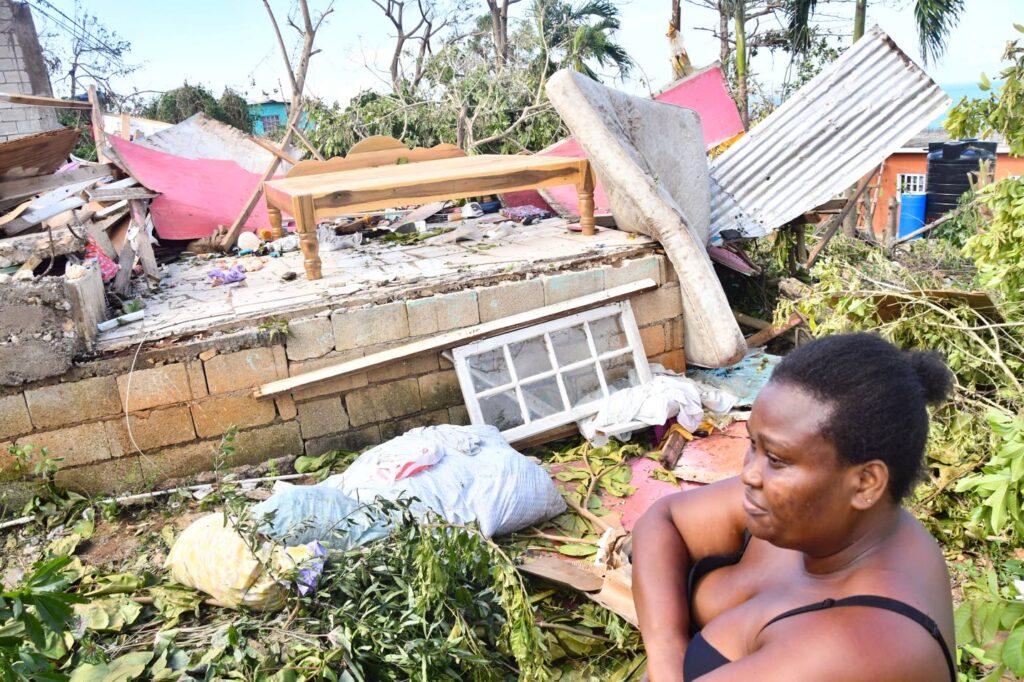
Only four suits of hotel uniform
Allison Alexander, a hotel bar attendant in St Ann, Jamaica, faced unimaginable devastation as Hurricane Melissa, a Category 5 storm, flattened her home while she was tending to tourists. Now, she and her seven-year-old daughter are among the countless Jamaicans left homeless by the disaster. Alexander’s home, a two-bedroom wooden structure, was completely destroyed, with a fallen tree crushing its walls and scattering her belongings. Despite her personal loss, Alexander remained dedicated to her job, ensuring the safety and comfort of hotel guests throughout the storm. She shared her harrowing story with the Jamaica Observer, revealing that she and her daughter now have nothing but the clothes on their backs. The hotel provided temporary shelter for staff and their families during the hurricane, but Alexander is uncertain about her next steps as the arrangement is set to end. She expressed frustration over the inadequacy of her minimum wage salary, which she says is insufficient to rebuild her life. Prime Minister Andrew Holness has pledged to increase the national minimum wage, but for Alexander, the immediate need for shelter and basic necessities remains urgent. She has appealed for help, stating, ‘If anybody can help me, please, I am begging you. I don’t have anything.’
-

Calendarise remote learning for continuity in crisis
The COVID-19 pandemic was not merely a global health crisis; it fundamentally transformed the landscape of education. As classrooms emptied and screens became the new learning hubs, teaching and learning underwent a dramatic redefinition. From makeshift roadside schoolrooms to teachers delivering materials door-to-door, the pandemic forced a rapid shift to remote education. For those with access to digital devices and the internet, online learning became an academic lifeline. However, the crisis also exposed the stark digital divide in many countries, highlighting the challenges faced by students and educators in underserved communities.
-
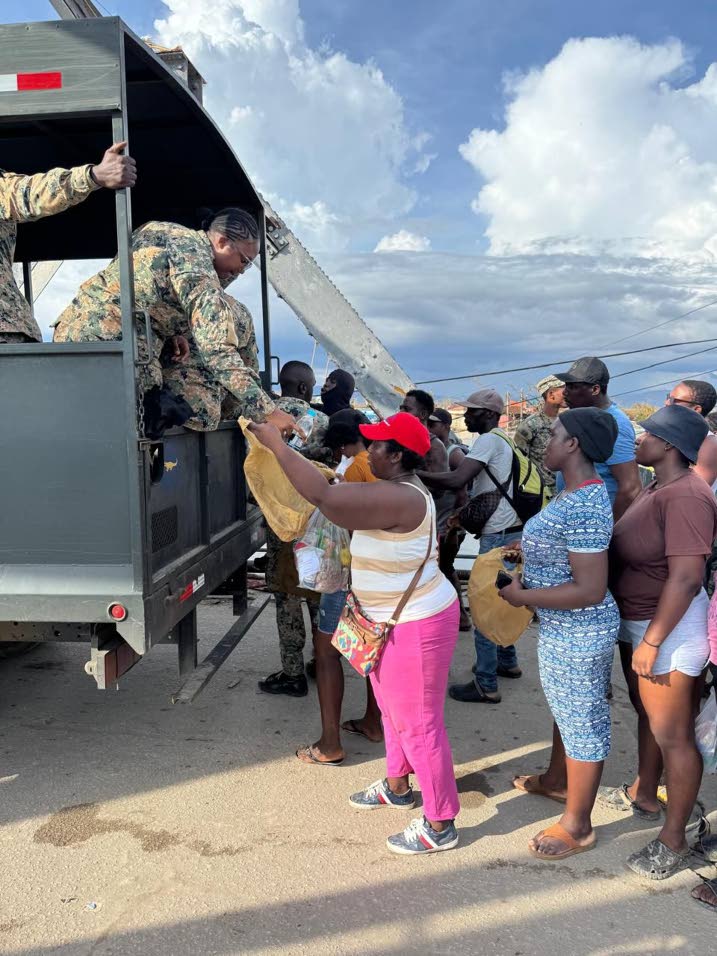
Recovery in full gear
In response to the devastating impact of Hurricane Melissa, the Jamaican government has unveiled plans to establish multiple field hospitals across the island as the death toll rises to 28. The Category 5 storm, which struck last Tuesday, severely damaged healthcare facilities in western Jamaica, prompting urgent measures to address the crisis. Health and Wellness Minister Dr. Christopher Tufton announced during a media briefing on Saturday that the first field hospital will be constructed in Black River, St. Elizabeth, with assistance from the international humanitarian organization Samaritan’s Purse. The facility, equipped with an operating theater and critical diagnostic equipment, is expected to begin operations on Sunday, November 2. Additional field hospitals will be set up in Savanna-la-mar, Falmouth, Noel Holmes, and Cornwall Regional. The Indian, Canadian, and Spanish governments have also pledged support by providing field hospitals. Meanwhile, the Ministry of Labour and Social Security, in collaboration with humanitarian partners, has distributed essential supplies such as food, water, and care packages to patients and staff at Black River Hospital. International aid continues to pour in, with the World Food Programme delivering 5,000 food kits to feed 15,000 people for a week and the Dominican Republic sending a Navy vessel loaded with over 1,050,000 food rations and other relief supplies. Local Government Minister Desmond McKenzie reported significant progress in clearing major roads, including the reopening of the Class A road from Kingston to Lucea and the southern route from Santa Cruz to Black River. Additionally, the Jamaica Public Service Company has restored electricity to 150,000 customers across several parishes. The Jamaica Defence Force has also been actively involved, delivering relief packages to affected communities in Black River.
-
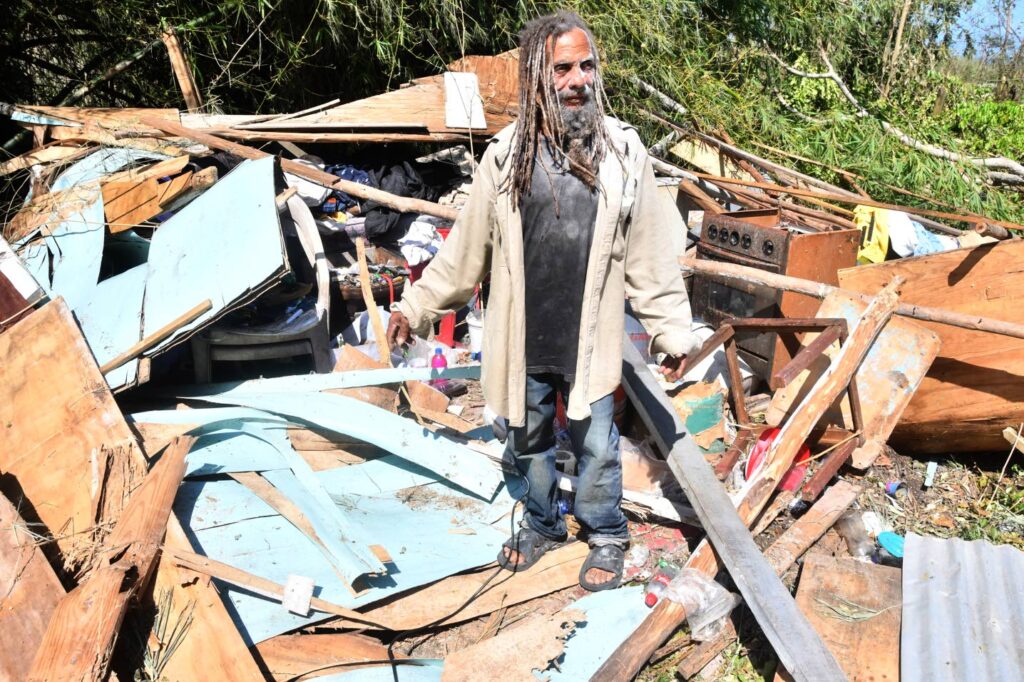
Finding joy in disaster
In the aftermath of Hurricane Melissa, which devastated Laughlands, St Ann, Jamaica, the community’s spirit remains unbroken. Residents like Ferdinand King and Richie exemplify resilience and camaraderie as they face the daunting task of rebuilding their lives. King, whose home was flattened by the storm, found moments of laughter amidst the chaos, recalling how he narrowly escaped the collapsing structure. Despite the loss, he remains focused on moving forward, drawing strength from his past experiences with hurricanes like Gilbert and Ivan. Richie, a farmer and carpenter, also shared his story of survival, using his ingenuity to create a makeshift bridge from fallen tree limbs after the storm washed away the original. Both men emphasize the importance of community support and are calling for assistance to rebuild their homes and livelihoods. Their stories highlight the enduring Jamaican spirit of joy, resilience, and unity in the face of adversity.
-

From cancer diagnosis to a passion for running
Sonia Haboub, a Dubai-based distance runner, professor, and CEO of The Globe Runner Scholar, has been appointed as the Global Ambassador for the 25th Reggae Marathon, set to take place this December in Kingston, Jamaica. Known internationally as The Globe Runner Scholar, Haboub’s life story is a testament to endurance, education, and empowerment across continents. Born and raised in Italy to a multicultural family, Haboub has traveled to over 100 countries, speaks eight languages, and has built a career that bridges academia, sport, and storytelling. Her journey began with a desire to break away from conventional paths, leading her from luxury brand management in London to academia in China, France, and the UAE. A personal health scare, when she was diagnosed with early-stage cancer, deepened her philosophy of living a fulfilling life. Following her recovery, Haboub embarked on a seven-month solo journey that reshaped her life, finding healing in movement. What began as light jogging evolved into competitive running and triathlons. Today, Haboub combines her philosophy of movement and meaning in everything she does, from teaching intercultural marketing to building community initiatives that empower young runners in Kenya to pursue both sport and education. Her company reinvests most of its proceeds into a non-profit that provides academic support for youth athletes. As the Reggae Marathon’s 2025 global ambassador, Haboub’s mission aligns perfectly with the event’s evolving story, which promises to highlight both elite performance and cultural connection. Runners from over 25 countries will experience a World Athletics-certified course that winds past landmarks such as the National Gallery, Rae Town, and Water Lane’s Artwalk murals, finishing along Kingston Harbour. For Haboub, the Reggae Marathon represents far more than a race; it’s a celebration of culture, music, and community. In the months leading up to the event, Haboub will document her training and share her experiences discovering Kingston’s running routes and cultural hotspots, hoping to inspire women and youth across the Caribbean and beyond to see running not just as fitness but as a bridge between people, places, and purpose.
-
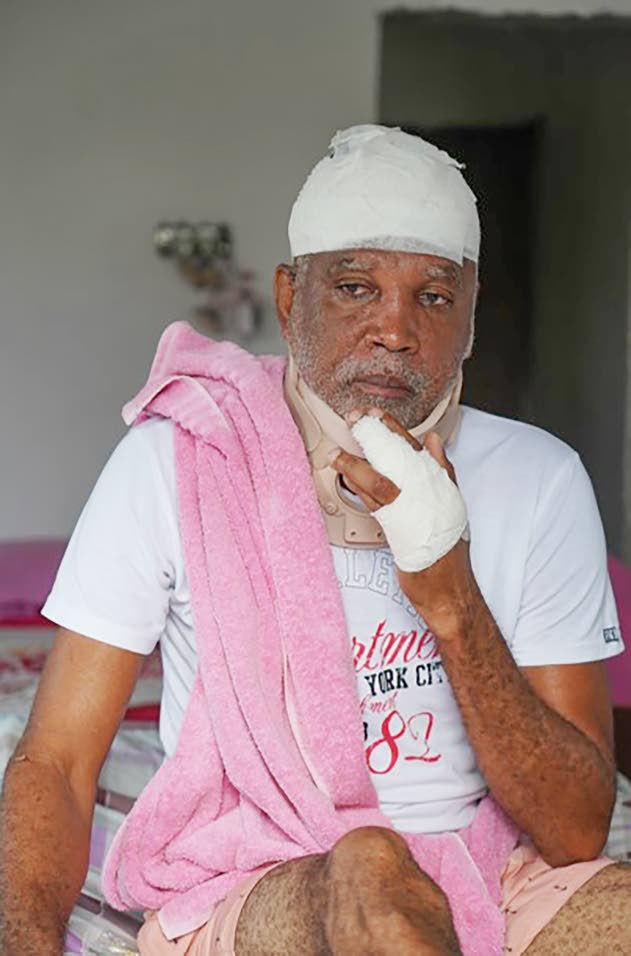
‘Mi house just lift up and carry mi gone’
For Junior Bowen, a 59-year-old resident of Petersfield, Westmoreland, the devastation wrought by Hurricane Melissa transcended the ferocious 185-mile-per-hour winds. His ordeal reached its peak when his home was torn from its foundation, lifting him into the air before hurling him into nearby bushes. The Category Five hurricane struck last Tuesday afternoon, leaving Bowen battered, buried, and helpless beneath the rubble until rescuers found him.
